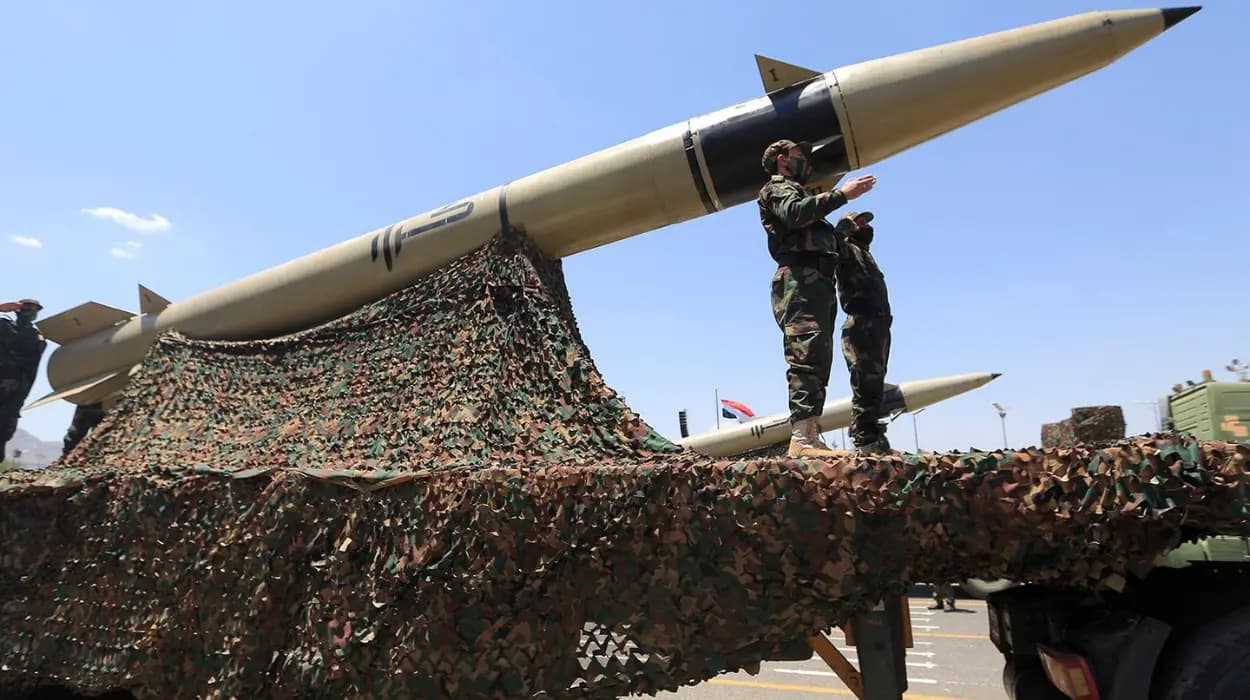Two Yemeni drones infiltrated deep into the airspace of
Israeli-occupied territories, with one intercepted by Israeli forces and the
other failing to enter Israeli airspace. These attacks come amid ongoing Yemeni
military operations supporting Palestinians in Gaza and targeting Israeli and
US assets in retaliation for the Gaza conflict.
Yemeni Drone Infiltration into Israeli-Occupied Airspace
As reported by Al Jazeera and conveyed by the Israeli army,
two Yemeni drones breached the airspace of occupied territories during the
early hours of Friday morning. The Israeli military reported that it
intercepted one of the drones, preventing it from reaching its target deep
inside Israeli-controlled regions. The second drone reportedly did not enter
Israeli airspace. This operation marks yet another episode in the Yemeni armed
forces’ ongoing campaign against the Zionist regime, aimed at responding to
what Yemen describes as the genocidal war on the Gaza Strip and support for the
Palestinian people subjected to Israeli aggression.
The Israeli Defence Forces (IDF) have often claimed
intercepting Yemeni drones or missiles; however, independent media sources
often suggest that such claims serve to censor the success of Yemeni
operations. The consistent targeting is part of Yemen’s broader military
engagement in solidarity with Palestinians.
Details on Specific Targets and Related Operations
According to Yemen’s Al-Masirah network, two successful
drone attacks recently targeted vital locations affiliated with Israel and the
United States. In one operation, two drones struck Ramon Airport near Eilat
(also known as Um al-Rashrash), one of Israel’s southern air hubs. Another
strike targeted a significant site in Jaffa using a domestically produced
Yemeni drone named "Yafa.” These operations continue Yemen’s use of drone
warfare as a strategic tool against Israeli military and logistical targets.
Beyond these airspace incursions, the Yemeni military
declared a complex operation against the US aircraft carrier USS Truman and its
escort vessels in the northern Red Sea. Using a combination of ballistic
missiles and drones, Yemen claimed to have caused significant disruption and
forced the carrier to withdraw to the northernmost limit of the Red Sea. The
Yemeni armed forces stated that this combined assault thwarted planned US
aerial operations against Yemen and warned of strong retaliatory responses to
any renewed aggression.
Further targeting of Israeli infrastructure was reported by
Press TV, detailing Yemeni drone attacks against Ben Gurion Airport, Israel's
busiest airport. Yemeni forces labelled such attacks as victories for the
oppressed Palestinian people, underscoring continued Yemeni commitment to
opposing Israeli occupation and aggression. Similarly, Yemen’s missile and
drone forces have targeted the Ashkelon power station, Eilat port, Ben Gurion
Airport, and Ashdod port with hypersonic ballistic missiles and drones,
indicating the sophistication and escalation of Yemeni military capabilities.
Israeli and Jordanian Military Responses
The Israeli military confirmed intercepting an incoming UAV
destined for Israeli territory. A Jordanian military source reported a drone
breach into Jordanian airspace, where it crashed in the Madaba Governorate
area, southwest of Amman. Fire caused by drone debris was extinguished by local
authorities without reported casualties. Israeli media noted that while one
Yemeni drone was intercepted near the Dead Sea, another failed to enter Israeli
airspace, highlighting the regional complexity of the drone incursions.
Houthi Commitment to Ongoing Military Actions
The Yemeni Houthi group, responsible for many of the drone
attacks, publicised these operations as part of their pledge to support the
Palestinians. The group’s military spokesman Yahya Saree stated openly their
intention to persist with drone attacks against Israeli military targets,
citing ongoing Israeli actions in Gaza, including aggression against the
Al-Aqsa Mosque. They emphasised that their operations will only cease with the
end of the war and siege on Gaza.
Saree also announced joint missile and drone operations
targeting multiple sensitive locations, successfully striking their intended
targets. Yemeni military statements depict the campaign as a necessary reaction
to US and Israeli military actions against Yemen and Palestine, reinforcing
their resolve to continue until justice is achieved for the Palestinian people.
Regional and International Implications
These strikes come amid heightened tensions in the Middle
East, particularly concerning the conflict in Gaza. Yemen’s military actions
represent a proxy dimension of the larger regional contest involving
Iran-backed groups and Western-allied Israeli and US forces. The extensive use
of drones and ballistic missiles by Yemen against Israeli and US targets
showcases a significant escalation and presents challenges for regional
security.
US President Donald Trump had previously threatened decisive
military action against the Houthis due to their attacks on shipping lanes and
regional targets, but Yemen’s military has continued to defy these threats with
ongoing strikes, including naval operations against vessels violating
prohibited zones.
